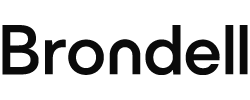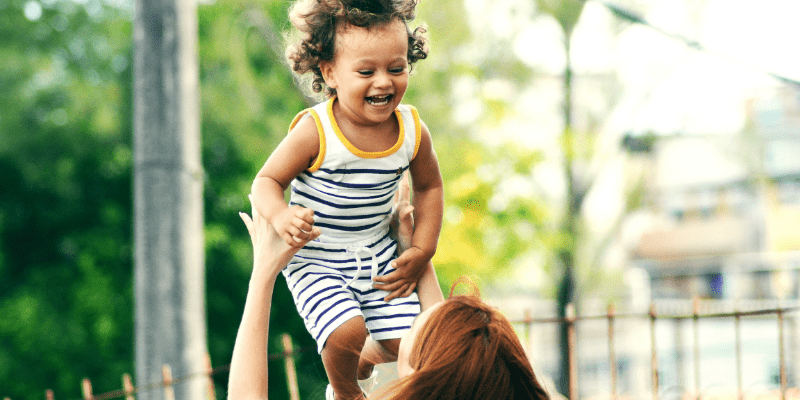
You’re well into the third trimester of pregnancy and you’ve done your homework. Maybe you started with the classics: “The Girlfriend’s Guide to Pregnancy,” “Ina May’s Guide to Childbirth,” or “What to Expect When You’re Expecting.” You’ve no doubt scoured the internet, digging up whole volumes on prenatal supplementation regimens, screening schedules, neo-discipline Lamaze theories, and alternative birthing scenarios. Your partner has developed a nervous twitch.
Take a deep breath. You both can handle this. Once you’re done finding your Zen, it’s time to start thinking about what to do once your baby arrives. To help in that way, we’ve consolidated a list of 7 helpful post-pregnancy tips so you and your newborn can have the best, most comfortable start possible.
1. Stock up on comfy loungewear and PJs
Two things are certain in living the postpartum lifestyle:
- You’re going to be spending way more time at home with your new baby.
- Your time is going to become super valuable.
Our advice: stock up on at least 7 sets of comfortable pajamas or loungewear so you can spend more time with your newborn without having to worry about laundry.
For comfort and airflow, pajamas made from bamboo materials win. Not only are they stretchy, eco-friendly, and soft, but they’re also great at wicking moisture, which can help with night sweats and hot flashes. Cotton has similar benefits, too, since the spacious makeup of its fibers allows for better breathability than fabrics made of polyester.
If you’re planning to breastfeed, consider clothing designed for easy access, like a 2-piece set with a V-neck top, a robe, or a stylish nursing nightgown. Darker-colored fabrics may help hide those stubborn stains that can arise from any number of baby mishaps. That said, your favorite T-shirt and leggings are postpartum classics for a reason.
Once you're set on pajamas and loungewear, give yourself time to wear them in peace. Many moms recommend keeping the first 2 weeks after pregnancy visitor-free as much as possible. Yes, your friends and family will be dying to meet the newest member of the family. But you and your baby are going to be busy bonding, and they’ll understand if you need some downtime to rest.
2. Peri bottles are great—bidets are even better
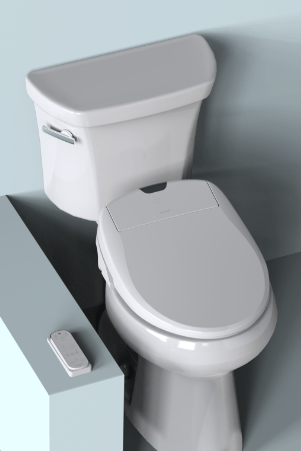
As far as phrases go, “the miracle of childbirth” is pretty spot-on. Your ability to literally create life is incredible when you stop to think about it. However, it does gloss over the whole giving-birth thing, which—as you may have heard—is a bit of a process.
According to experts, one way to promote postpartum healing is to get a peri bottle. Essentially, it’s a plastic squeeze bottle with a spray nozzle, allowing you to wash gently with water instead of toilet paper after going to the bathroom.
Don’t get us wrong. Post childbirth, the refreshing stream of warm water from a peri bottle beats toilet paper any day. But a bidet gives you the gentle, hygienic clean you’ll need, plus additional comforts and features to enjoy for years to come.
Electronic bidet toilet seats, bidet attachments, handheld bidet sprayers, and travel bidets can help with a variety of postpartum issues, including:
- postpartum hemorrhoids
- lack of mobility
- general cleanliness before and after delivery
- lochia
- urinary tract hygiene
- promote healing
Whether you go with a bidet or a peri bottle, experts recommend washing with warm water. Bidet seats not only provide soothing warm water washes, but also come with a range of luxury features, including warm air dryers, heated seats, automatic deodorizers, and nightlights. Let’s be real—after delivery, you’ll deserve to be pampered.
If there isn’t an electrical outlet near your toilet, many non-electric bidet attachments can be hooked up to the hot water line, which is usually located under the bathroom sink. Or if you prefer the simplicity of a peri bottle, a portable travel bidet provides the same medical benefits and more, like an angled spray nozzle, an ergonomic soft-squeeze bottle, and a discreet cloth carrying bag.
Pro Tip: Since bidet seats and attachments are sold at a range of price points, they make excellent baby shower gifts.
3. Bluetooth headphones are a lifesaver
Let's say you’re up for a 3 a.m. feeding or to rock your baby to sleep. You want nothing more than to be there for your child, but the crying is taking its toll. Improving your situation may be as simple as listening to your favorite album, podcast, or audiobook through noise-canceling headphones.
The cries of a baby can reach decibel levels between 100-120 dB(A). That’s somewhere between the honk of a car horn and the shriek of a siren, according to the CDC. Noise-canceling headphones can help protect your ears and pass the time while you care for your baby.
Of course, the goal here is to take the edge off the crying—not to tune it out completely. Keeping the volume of your headphones at an appropriate level allows you to binge-watch Netflix and pay attention to your baby’s needs. Alternatively, if you find listening to something to be too distracting, simple earplugs or over-the-ear earmuffs will do the trick, as well.
Wireless Bluetooth headphones will help ensure you're not dealing with the added stress of tangled wires. Babies absolutely love yanking on wires, hair, clothes, pets, etc. You’ll see.
4. Food delivery is your friend
You'll be so busy snuggling your new baby that cooking might take a backseat. But new moms—especially nursing moms—need good nutrition. Luckily, there are all sorts of apps, services, etc. to deliver the healthy food you need right to your door. After all, your time is about to become seriously valuable and anything you can do to get some of it back will help tremendously, even if it’s one less errand or grocery store trip.
Meal box subscriptions can help save time and ensure that there’s always something nutritious and delicious to eat. You’ll choose the delivery cadence, serving size, and dietary preferences—then, for a monthly fee, customized meals will be delivered to you every week. Some services deliver ready-to-eat meals, while others provide the ingredients with an easy-to-follow recipe. Whatever your lifestyle, there are a variety of meal subscription services to enjoy, from vegan to keto, and most require very little prep work.
If you haven’t tried ordering groceries from the comfort of your couch, you have our absolute blessing to do so now. These days, many big chain stores have their own grocery delivery services, though there are 3rd party delivery apps, as well. Grocery delivery does increase costs. Some stores operate on a per-trip fee, while others have a monthly membership. But many moms find it a worthy trade-off for the time they save.
5. Get an air purifier
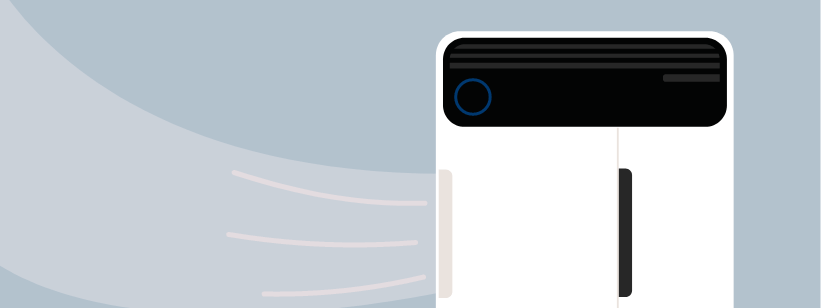
The first few weeks of motherhood are…a lot. It gets better. Still, expect a learning curve to the sleepless nights and the frequent crying. Thankfully, one thing will be easy: providing fresher, cleaner air for you and your baby to breathe. Prep your space with a high-quality air purifier and worry less about airborne contaminants, like allergens, dust, and more.
Air purifiers with HEPA filters remove 99.7% of particulates larger than 0.3 microns, including dust, smoke, pet dander, mold spores, and pollen. When paired with adequate windows and a clean house, an air purifier with HEPA filters may provide a range of health benefits, from the relief of seasonal and pet allergy symptoms to protection from smoke particles during wildfire season.
Not all air purifiers are created equal, especially when there’s a baby in the room. Be sure to get one that doesn’t emit ozone, a gas that the EPA says can cause a range of respiratory issues. Mechanical air purifiers are your best bet since they trap contaminants with fans and filters (not ozone-emitting electric processes). Air purifiers that are certified to emit zero ozone are safe to use as well—just make sure they are certified by a trustworthy organization, like Intertek.
If you or your baby gets congested due to a cold, a humidifier or an air purifier/humidifier combo may help ease symptoms. When choosing a humidifier for your child, the Mayo Clinic recommends getting a cool-mist humidifier or one that doesn’t run hot. Just be sure to keep the tank clean and dry between uses to avoid the growth of mold or bacteria. Also, look for a machine that features child lock settings, as newborns become curious toddlers in the blink of an eye.
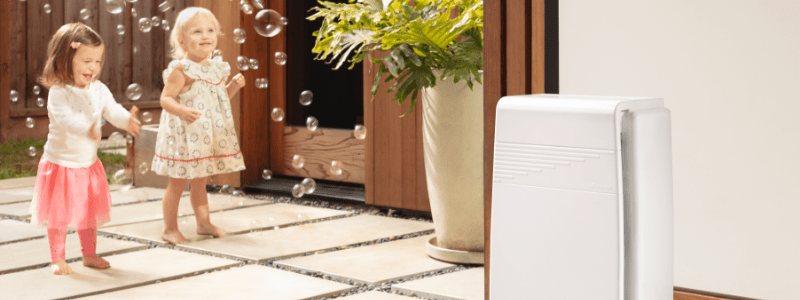
6. Join a mom group or take a class
No matter how much research you do, you’re bound to encounter a baby question that you just can’t answer alone. Joining an online mom group or class can help with that.
For courses, there are plenty to choose from and each one covers a different aspect of motherhood. Many prestigious universities have free online parenting courses, even Yale—Stanford has one for breastfeeding, as well. Or, you could try an online education company like Tinyhood, which offers a range of courses for infant CPR, sleeping, care basics, etc.
Don’t sleep on local public resources. Public health agencies, libraries, and parks and recreation departments are often a treasure trove of mom info, and many offer free in-person breastfeeding and child-rearing classes. A simple Google search or the community website Nextdoor can both be valuable tools to find resources like these in your area.
Parenting classes are great, but nothing can replace connecting with real moms. Joining a mom group on Facebook or IRL lets you get valuable advice, tips, and perhaps some new friends along the way.
7. Bidet sprayers make amazing cloth diaper sprayers
You’ve heard all of the statistics about disposable diapers—that three million tons of them went to landfills in 2018. You want to be a part of the solution, not the problem. Helping the environment feels amazing. But how do you deal with all of the baby poop in those eco-friendly cloth diapers?
Cloth diapers are a godsend for your budget and the environment. They’re a bit of an investment early on, but in the long run, they’re more affordable than disposables. But how do you clean them? The answer: get a bidet sprayer.
Bidet sprayers make great diaper sprayers. They’re affordable, easy to install, and they’ll make that separate laundry basket filled with soiled diapers considerably less stinky.
Not familiar with diaper sprayers? Here’s how they work: they connect to your toilet’s water supply and mount to your wall or toilet. ( Click here for simple, DIY installation instructions.) Once installed, cleaning dirty diapers is easy. Just lay the cloth diaper on the toilet seat and spray off any remaining baby poop into the bowl.
Bidet sprayers have other uses as well. Most obviously, you’ll be getting a bidet, which will save you money on toilet paper. When adapted for warm water, bidet sprayers also provide an alternative to peri bottles for a gentle, healing postpartum cleanse. Plus, they can be used for other cleaning purposes, such as cleaning your toilet or shower. Once your child starts playing outside, bidet sprayers can be used to rinse off muddy shoes in the bathtub or to give the dog a bath.
Pro Tip: There’s no shame in keeping disposable diapers on hand for those days when you just don’t feel like using cloth diapers.
8. Get a water filter system
Filtered water is a healthier option for anyone, especially new moms. Filters reduce all sorts of contaminants (like lead and mercury) that can make their way into tap water through old pipes and other sources. Getting one at the start of your pregnancy ensures that you’ll always have cleaner water to drink, which is good for both you and your baby.
What’s the best way to filter your tap water? Water filter pitchers are convenient but having to refill them can be a hassle. They also may not filter out as many contaminants as water filter systems, which often contain more advanced filter sets. Our Coral and Circle systems are Water Quality Association certified to reduce 75 different contaminants, while our Capella can reduce up to 86. These install under your sink, delivering refreshing filtered water through a separate drinking water faucet (included with purchase). They’re also easy to install and won’t require many additional tools or a visit from the plumber.
Another benefit water filters provide is a cleaner source of water for baby formula. When mixing baby formula, boiling (and cooling) tap water is essential for eliminating pathogens and bacteria that can make your baby sick. What boiling doesn’t do is remove contaminants or debris. Using filtered water is an easy step to reduce your baby’s exposure to unwanted chemicals, heavy metals, and more.
Your newborn isn’t the only one who benefits from a water filter system. WebMD recommends new moms drink between 6-12 glasses of water a day. Getting a countertop, under-counter, or Reverse Osmosis system makes it easy to maintain this healthy habit while keeping single-use plastic bottles out of landfills.
No one can mom like you
We hope you’ve found these tips helpful. But we’ve saved the best for last: just be yourself. No 2 moms are the same, and parenthood is all about finding what works best for you and your baby. Yes, new mom anxiety can be tough–but so are you. You’ve done your homework, and that’s half the battle. Now it’s time to trust your instincts and get ready for the absolute best time of your life.
